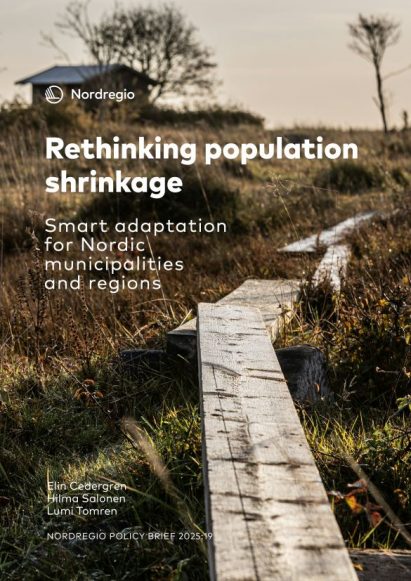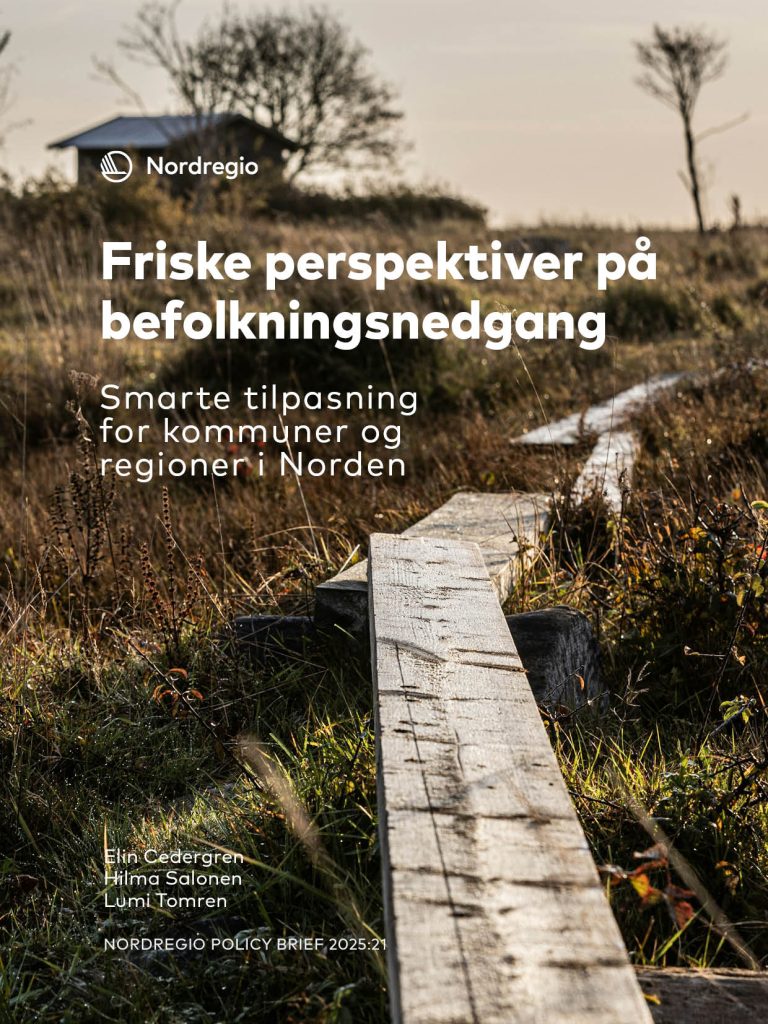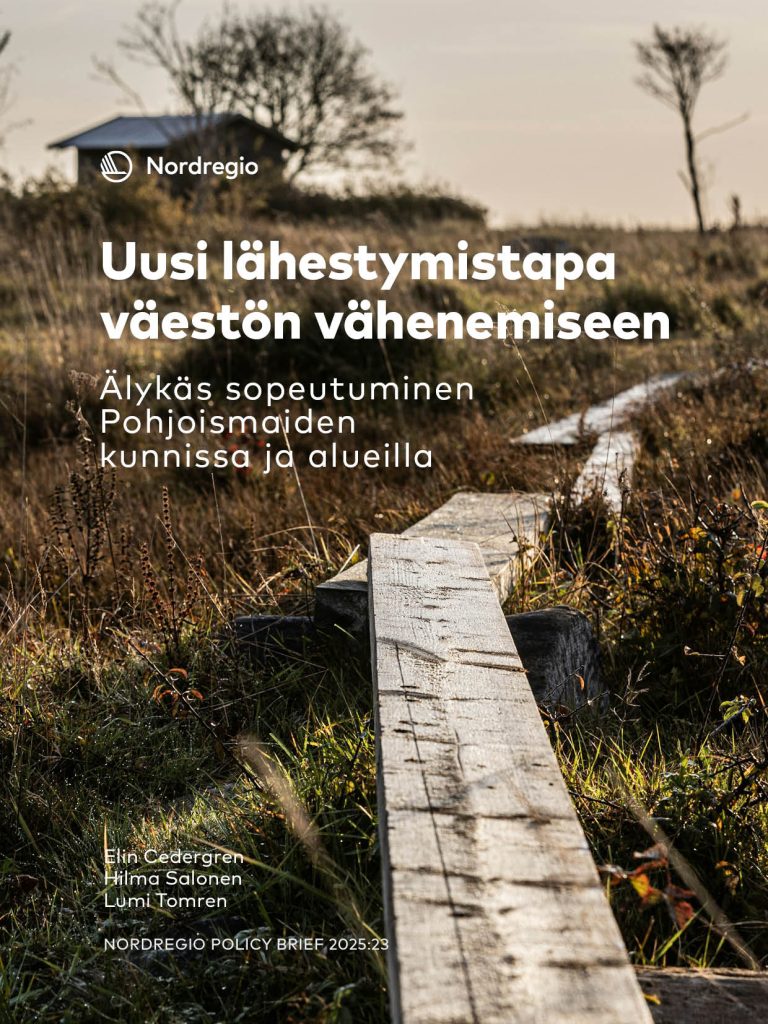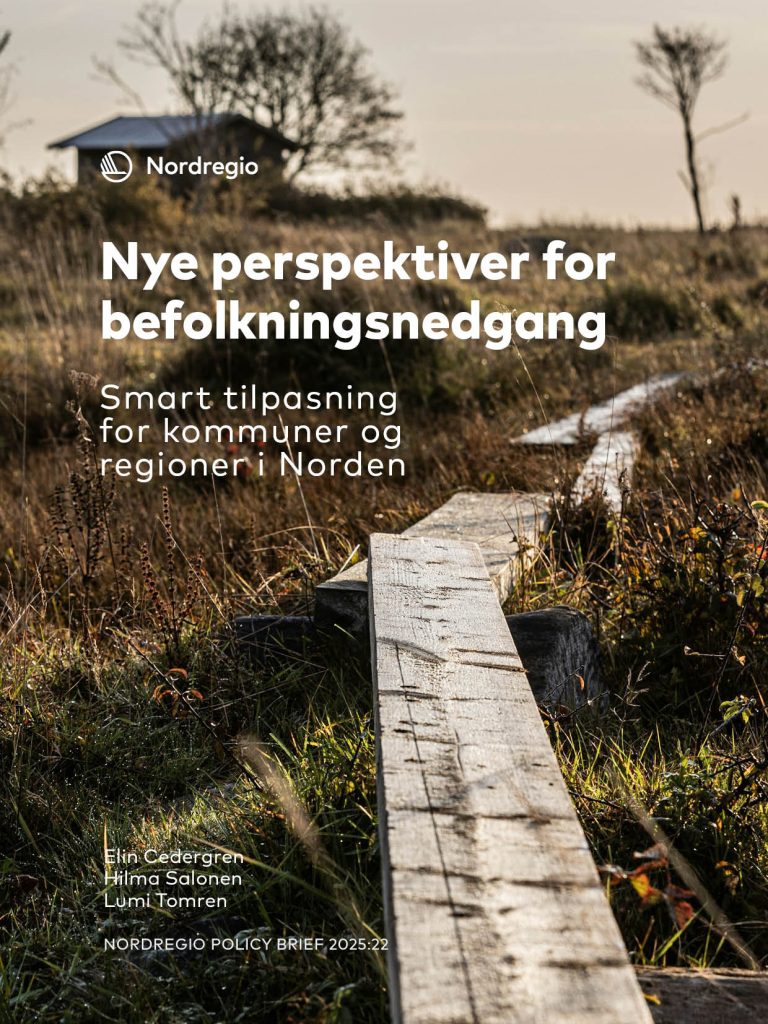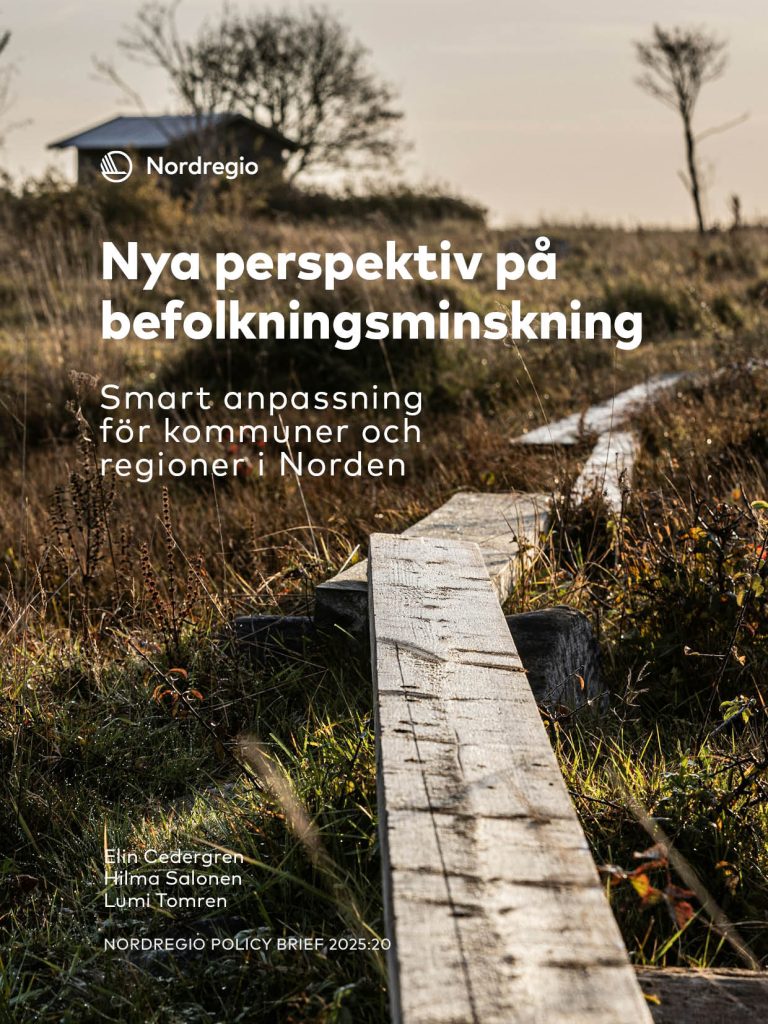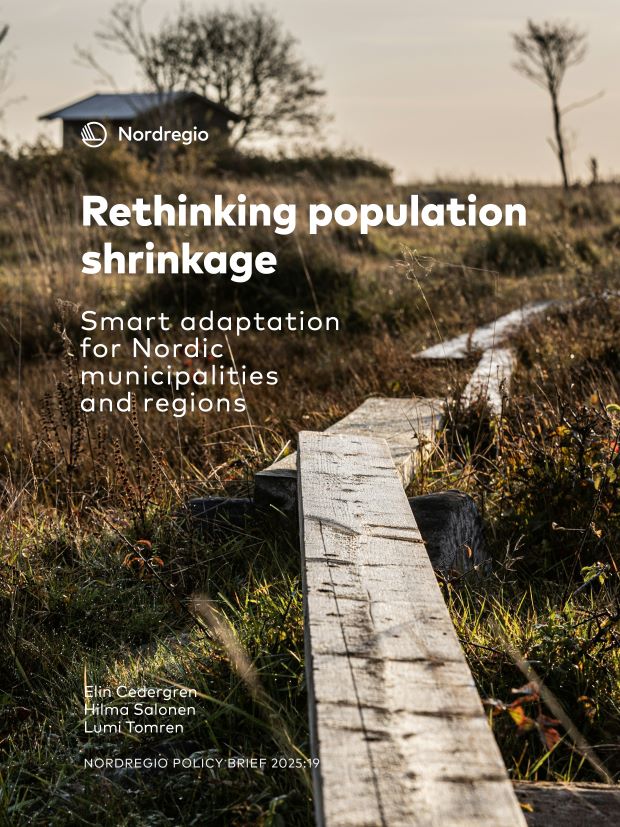Many Nordic municipalities are experiencing population decline, ageing, and uneven demographic trends, creating challenges for economic sustainability, service provision, and infrastructure development. While growth has traditionally been the policy focus, these shifts require a different approach. Smart adaptation offers a way to rethink resource allocation, adjust services, and foster innovation to build more resilient communities.
This policy brief explores how policymakers and planners can develop adaptive strategies to manage demographic change effectively. It highlights key principles of smart adaptation and provides practical insights for national, regional, and local decision-makers.
This policy brief is also available in:
The policy brief outlines seven policy actions to support smart adaptation to population shrinkage in the Nordic region. Based on insights from a series of workshops with planners, policymakers, and experts, these recommendations highlight key pathways for managing demographic change effectively:
- Reframing the narrative on shrinkage
- Developing knowledge on shrinkage, demographic changes and their effects
- Communicative planning and the benefits of being small
- Social infrastructure and land use planning
- Multi-level governance and collaborative approaches
- Funding for long-term adaptation and future-oriented planning
- Policy responses to shrinkage coupled with the green and digital transitions
This policy brief is part of the Smart Adaptation to Rural Realities: approaches and practices in Nordic municipalities and regions (2023–2025) project, which explores governance strategies for managing demographic decline in the Nordic region. The findings draw on a review of Nordic and European research, an analysis of regional and rural development policies, and a series of workshops with municipal, regional, and national representatives from Sweden, Finland, Norway, Iceland, and Denmark. The project aims to facilitate knowledge exchange and identify adaptive strategies that support long-term resilience in shrinking communities.
